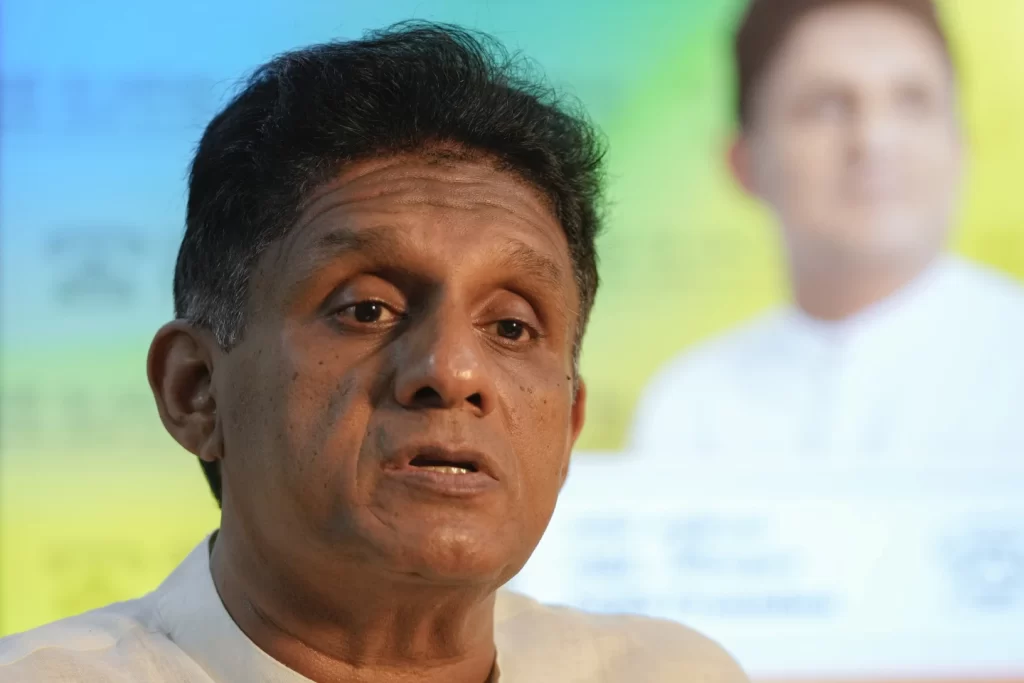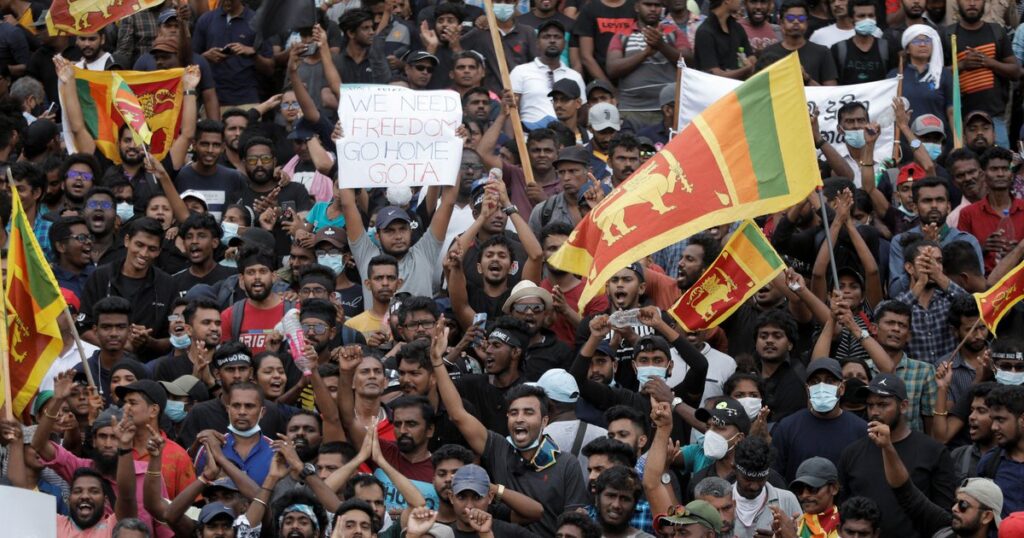Sajith Premadasa, Sri Lanka’s opposition leader and presidential candidate, pledged Thursday to renegotiate the country’s 2022 International Monetary Fund (IMF) economic reform package if elected, aiming to shift more of the tax burden to the wealthy while improving conditions for the poor.

In an exclusive interview with The Associated Press, Premadasa, 57, outlined his vision for Sri Lanka’s economic recovery ahead of the September 21 presidential election. The vote is widely seen as a referendum on the economic reforms initiated by current President Ranil Wickremesinghe following the country’s 2022 debt default and subsequent economic crisis.
Premadasa aims to pursue a “middle path” economic strategy, focusing on wealth creation and equitable distribution. He criticized Wickremesinghe’s approach as overly contractionary, instead advocating for an “export-oriented, knowledge-based economy” to grow out of the current economic challenges. The opposition leader revealed that his party has already initiated discussions with the IMF to explore ways to reduce the tax burden on citizens.

Emphasizing the need for “fundamental changes” to the current IMF agreement, Premadasa called for a more “humanistic manner” of implementation. He proposed that the “super-rich and the rich” should bear a disproportionately larger share of the tax burden to alleviate pressure on working-class Sri Lankans.
On minority rights and reconciliation, Premadasa committed to prosecuting officials from the previous administration who mandated the cremation of Muslim COVID-19 victims against their religious practices, calling it a “racist policy.”
He promised compensation for affected Muslim families and pledged to allow “maximum devolution of power” to the ethnic Tamil majority in the northern and eastern provinces. The candidate also vowed to address unresolved issues from Sri Lanka’s 26-year civil war, including forcible disappearances and missing persons.

The election comes as Sri Lanka grapples with the aftermath of its 2022 economic crisis, triggered by unsustainable debt, a balance of payments crisis, and the COVID-19 pandemic’s impact.
While Wickremesinghe’s administration has seen improvements in key economic indicators — including a dramatic drop in inflation from 70% to 0.5% — many Sri Lankans, particularly the poor and middle class, continue to struggle with high living costs and increased taxes.
Premadasa, son of former President Ranasinghe Premadasa, is one of 38 candidates but among the three frontrunners. He enjoys significant support from ethnic and religious minority groups, a factor that could prove crucial in the election outcome.
The candidate proposed convening an international donor conference to aid in rebuilding areas affected by the civil war, which ended in 2009 after claiming at least 100,000 lives.
As Sri Lanka approaches this pivotal election, Premadasa’s platform presents a stark contrast to the current administration’s policies. The outcome will likely have significant implications for Sri Lanka’s economic recovery trajectory and its approach to long-standing social and ethnic issues.


